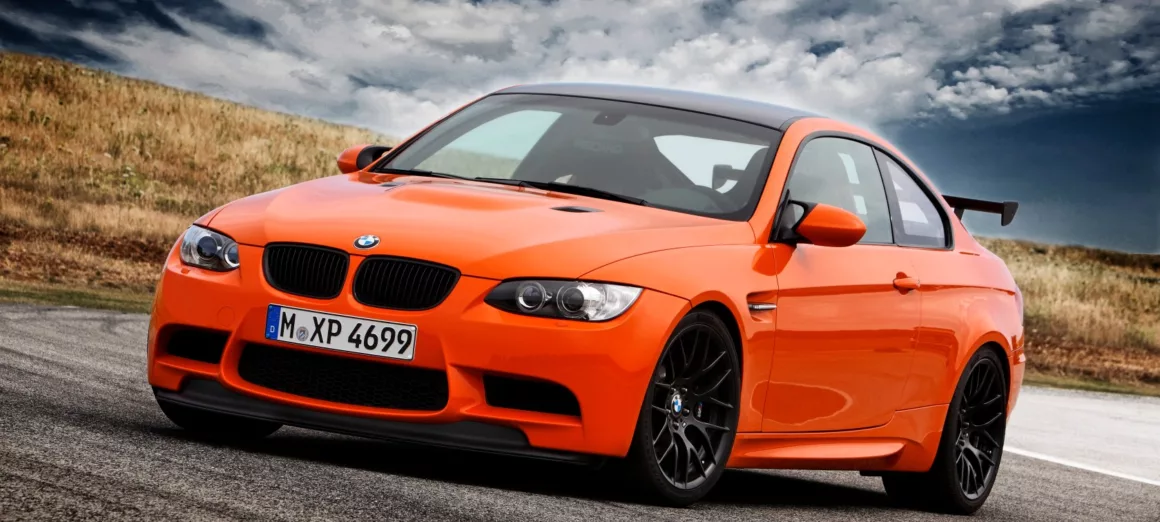BMW M, the high-performance division of Bavarian Motor Works (BMW), is one of the leading benchmarks when it comes to automotive performance, blending German precision engineering with the exhilarating essence of motorsport. With a heritage dating back to the 1970s, BMW M has consistently delivered vehicles that redefine the boundaries of performance, luxury, and driving dynamics. Over the years, the cars coming out of this performance-oriented division of BMW have led many to joke that M is the most powerful alphabet.
Jokes aside, the BMW’s M division has raked up such popularity and fanfare from drivers around the globe as at the heart of every BMW M model lies a relentless pursuit of perfection. From the track-inspired design cues which hark back to the origins of BMW M, to the meticulously tuned powertrains, suspension geometry, and aerodynamics, each aspect is tailored to elevate the driving experience to unprecedented levels of excitement and engagement.
What does BMW M stand for?
Back in the early days, BMW M stood for BMW Motorsport. Over the years as the brand started working heavily on creating M cars for regular buyers and not just race car drivers, it got shortened down to BMW M. In the beginning, BMW’s performance division only made heavily revised M models that were based on regular BMW cars like the 3 Series. These cars were instrumental in giving meaning to the phrase race car for the road. The M models offered the same cutting edge precision as their racing counterparts but were also capable of indulging the driver in a more comfortable experience. These cars were just called M with a number after it such as the M2, M3, M5 and more.
As the M alphabet in BMW’s umbrella started gaining popularity, a lot more people wanted to experience the thrill of having an M badge on their car and so BMW started filtering down the essence of an M car to its regular production cars. These, however, didn’t get the all-out hardcore M treatment and were rather given a few nips and tucks such as an engine tune, or a better exhaust. In short, it was a taste of what the real M cars from BMW were supposed to offer. Today, BMW’s regular sedans and SUVs all get an M variant or the other. As far as the proper M cars are concerned, they still carry the M badge before their numeric denotion.
Ultimately, BMW M vehicles are not merely about raw power; they embody a holistic approach to performance, seamlessly integrating cutting-edge technology with the driver’s instincts, making them feel at one with the car.
History of BMW M
The origins of BMW M trace back to the early 1970s when BMW sought to establish a motorsport division to compete in various racing events. This vision led to the birth of BMW Motorsport GmbH in 1972. Initially, the primary goal was to develop high-performance racing cars, but the expertise gained from motorsport quickly found its way into BMW’s road cars.

The first official BMW M car, the iconic BMW M1, made its debut in 1978. Designed as a mid-engine sports car, the M1 was a collaboration between BMW and Lamborghini, featuring a powerful inline-six engine and a sleek, aerodynamic body. While production numbers were limited, the M1 laid the foundation for what was to come. In 1985, BMW unveiled the legendary E30 M3, which marked the beginning of the M3 lineage. Originally conceived as a homologation special for touring car racing, the E30 M3 quickly garnered acclaim for its exceptional performance and handling. Powered by a high-revving four-cylinder engine and featuring aggressive styling cues, the E30 M3 became an instant classic and set the standard for compact sports sedans.
As the years progressed, BMW expanded its M lineup, introducing a range of models catering to different segments and preferences. The M5, based on the BMW 5 Series, debuted in 1984, combining sports car performance with luxury sedan comfort. Subsequent generations of the M5 continued to push the boundaries of performance, with each iteration refining the driving experience and incorporating cutting-edge technology. The 1990s saw the introduction of the BMW M3’s evolution, with the E36 and later the E46 M3 further solidifying its reputation as the benchmark for sports sedans. With more powerful engines, advanced chassis dynamics, and distinctive styling elements, the M3 continued to captivate enthusiasts around the world.

In the new millennium, BMW M embraced turbocharging, with models like the E92 M3 featuring high-revving V8 engines. While purists lamented the departure from naturally aspirated engines, the performance gains were undeniable, with turbocharged M cars delivering exhilarating acceleration and improved efficiency. In recent years, BMW M has embraced hybridisation and electrification, leveraging technology to enhance performance while reducing emissions. Models like the BMW i7 and the XM demonstrate BMW’s commitment to sustainable performance, blending electric power with the dynamic driving characteristics that define the M brand.
Beyond road cars, BMW M has continued to excel in motorsport, competing in series like DTM, IMSA, and the FIA World Endurance Championship. Success on the track not only showcases BMW’s engineering prowess but also serves as a testing ground for new technologies and innovations that eventually trickle down to production vehicles.

Today, the BMW M lineup encompasses a diverse range of models, from compact sports cars like the M2 to high-performance SUVs like the XM. Looking ahead, BMW M shows no signs of slowing down. With advancements in electrification, autonomous driving, and connectivity, the future holds limitless possibilities for the iconic performance brand. Whether on the road or the racetrack, BMW M continues to push the boundaries of automotive excellence, ensuring that the thrill of driving remains an integral part of the BMW experience.
What enhancements are made on a BMW M car?
BMW’s M division, responsible for creating high-performance variants of BMW vehicles, implements several modifications to enhance performance, handling, and overall driving experience. M cars often feature more powerful engines compared to their standard counterparts. This may involve increased displacement, turbocharging, or other performance-oriented modifications to boost horsepower and torque output. Coupled with that, performance-oriented exhaust systems are standard in M cars, providing a more aggressive exhaust note and potentially reducing exhaust back-pressure for improved engine performance. To deal with the added firepower, they feature a sport-tuned suspension system with stiffer springs, dampers, and anti-roll bars. This setup improves handling and cornering capabilities while maintaining a balance between performance and comfort.
High-performance brake systems with larger discs, multi-piston callipers, and improved cooling are a common sight on M cars. These enhancements provide better stopping power and fade resistance during spirited driving. To add to the zest, BMW offers a choice between manual and automatic transmissions. These transmissions are typically optimised for quicker shifts and better acceleration. Another key area where M cars differ from their regular counterparts are aerodynamics. They feature enhancements such as front splitters, rear spoilers, and diffusers. These components improve the airflow around the car and reduce lift, thus enhancing stability at high speeds. In some cases, M cars may feature chassis reinforcements to improve rigidity and enhance handling precision. This can include additional bracing, structural reinforcements, or lightweight materials in key areas.
Modern day M cars are also equipped with advanced electronic driver aids such as adaptive suspension systems, performance traction control, and configurable driving modes. These systems allow drivers to tailor the car’s behaviour to their preferences and driving conditions. Many M cars come equipped with a limited-slip differential, which helps distribute power more effectively to the wheels during cornering along with improved traction and stability. Last but not the least, M cars typically have unique interior and exterior styling cues to distinguish them from standard models. This may include M-specific badges, trim pieces, sport seats, and steering wheels.
BMW M Models in India
| Model | Body Type | Ex-showroom Price |
| BMW M340i | Sedan | Rs. 72.90 lakh |
| BMW X3 xDrive M40i | SUV | Rs. 87.7 lakh |
| BMW Z4 M40i | Two-door Convertible | Rs. 90.9 lakh |
| BMW X4 xDrive M40i | Coupe SUV | Rs. 96.2 lakh |
| BMW M2 Coupe | Two-door Coupe | Rs. 99.9 lakh |
| BMW i5 M60 xDrive | Sedan | Rs. 1.2 crore |
| BMW M4 Competition Coupe | Two-door Coupe | Rs. 1.48 crore |
| BMW M8 Competition Coupe | Two-door Coupe | Rs. 2.44 crore |
| BMW i7 M70 xDrive | Sedan | Rs. 2.5 crore |
| BMW XM | SUV | Rs. 2.6 crore |
Summary
BMW M cars represent the pinnacle of performance and precision within the BMW lineup. Engineered by the renowned M division, these vehicles undergo extensive modifications to elevate their capabilities on the road and track. From enhanced engines boasting increased power to finely-tuned suspensions and advanced aerodynamics, every aspect is meticulously crafted for an exhilarating driving experience. Whether it’s the spine-tingling exhaust note, razor-sharp handling, or blistering acceleration, each M car embodies the spirit of motorsport and luxury seamlessly.
Couple all of that with relentless pursuit of driver engagement that can be found in BMW’s DNA, and it just goes on to prove that M is indeed the most powerful alphabet.
FAQs about BMW M
What is BMW M in India?
BMW M in India is the German carmaker’s performance division that sells its highly-tuned vehicles. It is similar to the position BMW M holds globally within the German carmaker’s lineup of cars. Unlike some regular BMW cars, all proper BMW M cars are imported into the country as CBU (completely built-up) units.
What is the price range of BMW M cars in India?
The price of BMW M cars in India ranges between Rs. 73 lakh and Rs. 2.6 crore (both Ex-showroom). The all-out M cars hold a typically higher value as they attract an import duty on them as well.
What is the difference between M cars and M Performance cars?
M cars are all-out high performance vehicles designed specifically by the M division of BMW. Whereas, M Performance cars are performance variants of regular BMW cars that receive a few touches from the M division.
How many BMW M models are sold in India?
BMW sells a total of 10 with some form of M involvement in them. However, when we talk about proper M cars, the German carmaker currently sells only four of them in India.
Where are BMW M cars made?
While BMW cars are made at a lot of locations in the world, its M cars are designed and manufactured in a private facility at the Nürburgring racing circuit in Germany.


